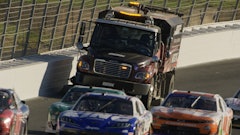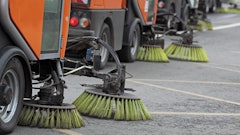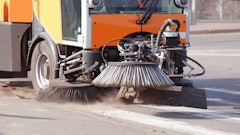Carl Barton, president, says that five years ago Aardvark Sweeping Service began using a global position system (GPS) on its trucks. "I just got tired of hiding in the bushes," he says. "You have to watch a rookie a long time to see if he's doing what you told him to do. Before I could afford a night manager I was out there driving behind guys all the time."
He says that GPS has done more than help him identify a bad employee quickly, it's helped him avoid making rash judgments on someone who could be or become a quality employee.
"If you need to send another truck out to fix something it's easy to think someone is goofing off, but maybe there's a reason for it that's not evident when the problem comes up," Barton says.
"When we look at the GPS we can see certain things. For example, we can tell by looking at GPS that it's taking a driver too long to sweep a parking lot. Maybe we know that the parking lot he's sweeping is connected to another parking lot that we aren't hired to sweep. If the driver isn't aware of where that boundary is he might be sweeping that other entire parking lot, or at least into that other parking lot, which would account for his extra time on the lot he's supposed to sweep. The only way we would know that is by actually watching him do that - or by looking at the GPS which tells us exactly where he sweeps."
Barton says the drivers who do what they're supposed to do love the GPS because it backs them up and can oftentimes bail them out of a problem. The drivers who are goofing off hate the GPS.
"You'd be surprised how many drivers do things they know they aren't supposed to do even though they know they're being monitored," Barton says. "What it amounts to is poor performers still screw up and weed themselves out real fast. GPS is the most cost-effective way to turn an employee around than let someone we've trained go."




![Pavement Awards 2025[main]](https://img.forconstructionpros.com/files/base/acbm/fcp/image/2024/05/PavementAwards_2025_main_.665883e4276e8.png?auto=format%2Ccompress&bg=fff&fill-color=fff&fit=fill&h=100&q=70&w=100)
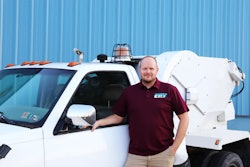
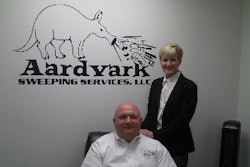
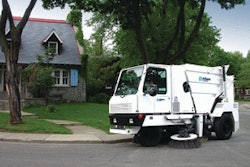





![Pavement Awards 2025[main]](https://img.forconstructionpros.com/files/base/acbm/fcp/image/2024/05/PavementAwards_2025_main_.665883e4276e8.png?ar=16%3A9&auto=format%2Ccompress&bg=fff&fill-color=fff&fit=fill&h=135&q=70&w=240)



